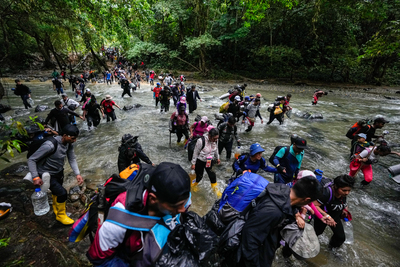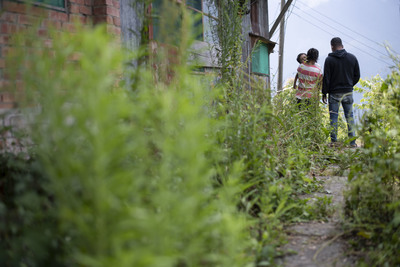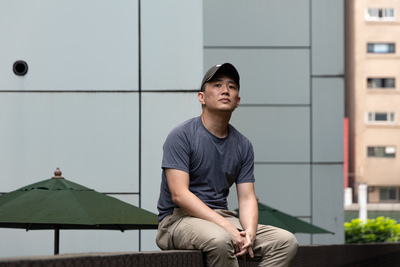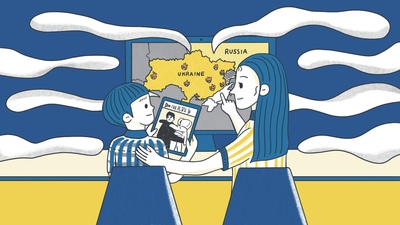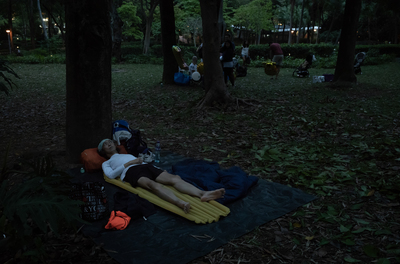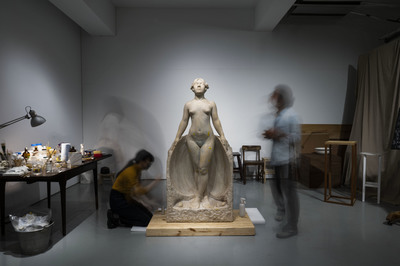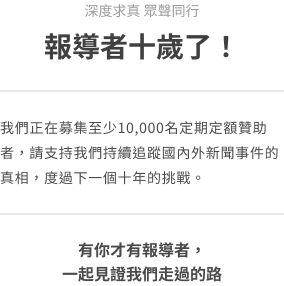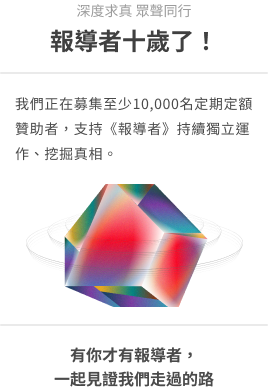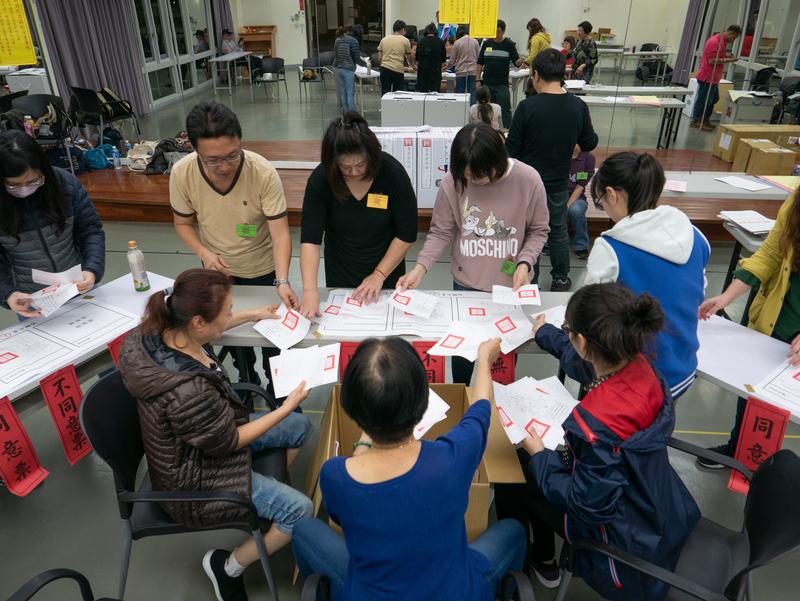
Chen Mei-hua says Taiwan's 2018 referendum questions on same-sex marriage and gender equity were unconstitutional.
Just as global attention was turning to Taiwan over the Constitutional Court’s decision to allow same-sex marriage, a first for Asia, the country’s LGBTQ advocacy groups suffered a severe setback. For anyone concerned with Taiwan’s democratic development, the results of the 2018 referendum questions should keep you up at night, after all, this was the first referendum since a 2017 legislative reform reduced the threshold for submitting questions on the ballot. There were three anti-LGBTQ questions on the ballot, that in my opinion, were unconstitutional.
In fact, of the ten referendum questions on the ballot, only three were rejected: the first supported same-sex couples marrying under the civil code, the second supported gender equity education in the national curriculum and a third one supported changing the country’s Olympic team name from “Chinese Taipei” to “Taiwan”. The result represents not only a misuse of direct democracy, but is also a setback to progressive values such as LGBTQ rights, feminism, and environmental protectionism.
First of all, voting on same-sex marriage is intrinsically unfair: LGBTQ communities are among the most disadvantaged in the country while opposition groups are well organized and well funded.
According to a government survey, 55 percent of respondents in 2012 approved of same-sex marriage and 59 percent approved in 2015. Polls over the last two years have shown that the same-sex marriage debate is a battle between the young and the old.
President Tsai Ing-wen (蔡英文) and the Democratic Progressive Party (DPP) majority government, however, did not come out to support same-sex marriage in the last election, because of opposition by Christian groups in her own party, and worries that they would lose support from elderly voters.
Taiwan’s Supreme Court ruled in 2017 that the current interpretation of the civil code on marriage were in violation of the Constitution’s articles on freedom of marriage and rights to equality, but the Tsai government did not take any immediate action; they gave breathing room to anti-LGBTQ groups and even allowed them to propose unconstitutional referendum questions.
As election day approached, the anti-LGBTQ campaign intensified. Christians comprise less than five percent of Taiwan’s population in Taiwan, but some radical Christian groups successfully used anti-gay rhetoric to mobilize voters.
On social media such as Facebook and LINE, misinformation about homosexuality and same-sex marriage was pervasive, and spread to physical spaces. Print advertising urging people to “love their family” were everywhere, on roadside stalls, night markets, parks and mailboxes. They lavished money on TV commercials and radio programs, spreading their message deep into living rooms across the country. Again and again, our elders heard this message: “vote yes to ten, eleven and twelve” (the questions opposing LGBTQ rights) “vote no everything else.”
There was also a group of women calling themselves “Rainbow Moms”, who took advantage of their confusing name and distributed flyers against homosexuality in metro stations, elementary schools, universities and even voting booths.
The anti-LGBTQ campaign worked directly with Christian church organizations and mega-corporations, leading to asymmetrical social mobilization efforts. For example, Cher Wang, chairperson of the cell phone manufacturer HTC, spent $900 million NTD ($29 million USD) in support of anti-LGBTQ campaigns. Surprisingly, Taiwan’s Central Election Commission, the statutory agency responsible for managing elections, did not bother to investigate this money flow.
LGBTQ rights campaigners, on the other hand, were a diverse, decentralized, and locally-based grouping, without adequate resources.
To win in a large-scale national referendum, you need a highly organized campaign and strong publicity. But deep-rooted myths and fears about homosexuality made advocacy for LGBTQ rights much more difficult, and campaigners weren’t able to break through the echo chamber. In fact, since the marriage equality issue came to the surface, the anti-LGBTQ campaign has done everything to spread false information and to stigmatization. Some of the distortions include:
- Overstating the role of sexual activities in gender equity education
- Promoting conversion therapy
- Linking same-sex marriage to low birth-rates
- Equating homosexuality with AIDS
- Claiming heterosexual sex practices are safer because vaginas are bacteria-proof
In short, discussion over non-issues derailed the same sex debate. LGBTQ rights activists had to spend all their time debunking rumours and clarifying the facts.
The revised Referendum Act was supposed to improve civil engagement through proper institutional design, but it’s had the opposite effect; television debates that were supposed to inform voters about the referendum questions became channels for spreading misinformation about homosexuality. This was a most awful abuse of the democratic process. There wasn’t a platform to have a meaningful debate and present views objectively. The public sphere should serve as a forum where citizens can talk about relevant issues freely and equally, but it no longer fulfills this role.
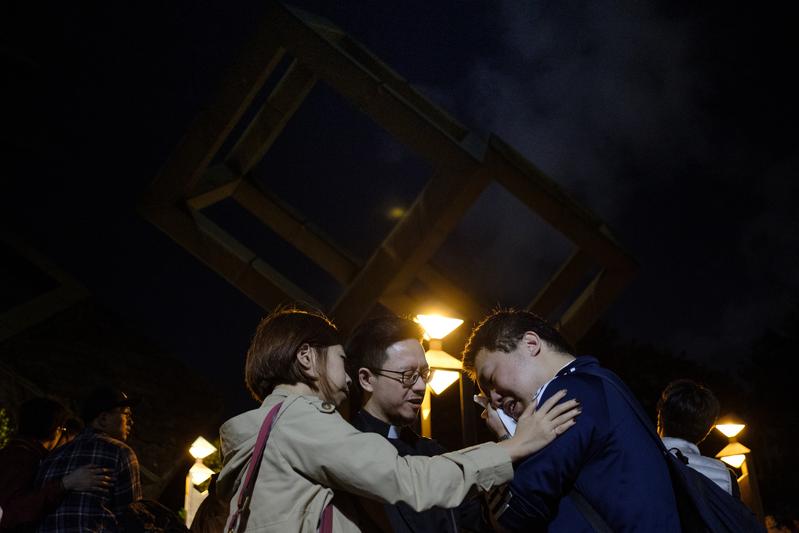
On the whole, anti-LGBTQ groups were seeking the public approval for the vote, not looking to hold a genuine dialogue. Catchphrases like “traditional marriage” and “family values” continuously circulated in Taiwan’s diverse society. As a result, older generations were heavily influenced by propaganda and “voting tips”, and didn’t obtain any knowledge of LGBTQ rights.
The fact that the referendum was held alongside local elections also made the issue of same-sex marriage less salient. Mayoral candidates deliberately avoided the same-sex marriage issue during televised debates, as if the issue didn’t exist.
Meanwhile, anti-LGBTQ campaigns gained noticeable support from several politicians. Han Kuo-Yu (韓國瑜), a KMT politician whose popularity soared during the 2018 campaign period, allied himself with the religious groups opposing homosexuality.
In addition, the result of the referendum could be attributed to CEC’s wrongful decision-making. Taiwan's Constitutional Court ruled that the Civil Code’s provisions barring same-sex couples from marrying were a violation of the constitution, and needed to be amended in accordance the court’s interpretation within two years.
But two of the 2018 referendum questions appear to contravene the courts ruling:
”Do you agree that marriage defined in the Civil Code should be restricted to the union between one man and one woman?”
“Do you agree that the Ministry of Education should not implement the Enforcement Rules of the Gender Equality Education Act in elementary and middle schools?”
Taiwan’s constitution guarantees freedom of marriage, personhood and human dignity. LGBTQ peoples are a social minority, subject to stereotypes and prejudices, and any differential treatment based on sexual orientation must be strictly examined.
But the CEC claims it lacks the power to review the content of referendum proposals, and included the two anti-LGBTQ rights questions on the ballot. LGBTQ advocacy groups were forced to discard their belief that “human rights should not be on the ballot” and initiated two counter-active referendum questions of their own. That leads us today, where five million people unintentionally denied the constitutional rights of others by casting a ballot, and a constitutional crisis.
There’s no integrity in holding a referendum on same-sex marriage. Instead, this form of direct democracy has infringed the rights of the LGBTQ community.
Ireland’s constitutional referendum on same-sex marriage yielded a landslide victory for the marriage equality camp, with a “yes” vote of 62 percent.
As crowds cheered the vote tally, LGBTQ rights campaigners weeped at their triumph, recalling how humiliating and traumatizing it was to knock on doors to seek the public’s approval. It was exactly the same feeling for Taiwan’s LGBTQ rights proponents. They did not receive better or fairer treatment as the Constitutional Court suggested, instead, they libelled and bullied by the opponents.
The only positive development of the referendum was that many in the LGBTQ community became more politically active. On the eve of the referendum vote, closeted individuals bravely came out to defend themselves and their community. LGBTQ rights supporters, regardless of their sexual orientation, made efforts to persuade their parents and relatives to vote against discrimination. The debate about LGBTQ rights has gradually permeated through society, and the discussion is no longer limited to politicians and school teachers.
We hope that one day, a friendly public sphere to discuss LGBTQ rights issues will arise, and the three million Taiwanese who voted in favour of same-sex marriage in the last referendum is a good start. We urge the Tsai government to pay attention to this constitutional crisis before it’s too late, and submit a proper bill regarding same sex marriage in accordance with the Constitution.
(To read the Chinese version of this article, please click: 陳美華/同婚公投:違憲、不公平戰役、公領域的陷落 )
深度求真 眾聲同行
獨立的精神,是自由思想的條件。獨立的媒體,才能守護公共領域,讓自由的討論和真相浮現。
在艱困的媒體環境,《報導者》堅持以非營利組織的模式投入公共領域的調查與深度報導。我們透過讀者的贊助支持來營運,不仰賴商業廣告置入,在獨立自主的前提下,穿梭在各項重要公共議題中。
今年是《報導者》成立十週年,請支持我們持續追蹤國內外新聞事件的真相,度過下一個十年的挑戰。

